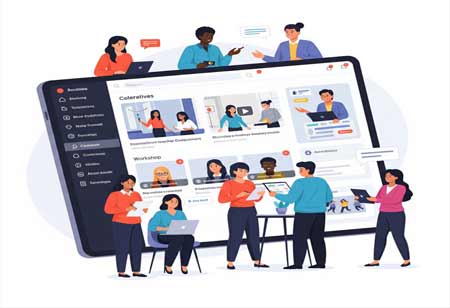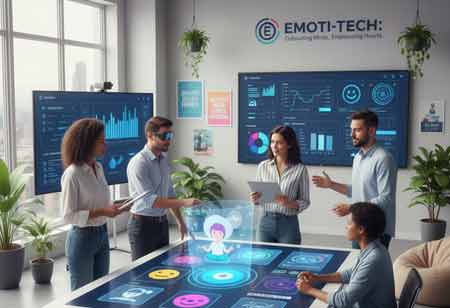THANK YOU FOR SUBSCRIBING
Be first to read the latest tech news, Industry Leader's Insights, and CIO interviews of medium and large enterprises exclusively from Education Technology Insights
Future-Ready Education: The Impact of Online Learning Technologies
Online learning has revolutionized education, breaking traditional boundaries and reshaping how knowledge is delivered, accessed, and consumed.

By
Education Technology Insights | Friday, January 31, 2025
Stay ahead of the industry with exclusive feature stories on the top companies, expert insights and the latest news delivered straight to your inbox. Subscribe today.
Online learning promises to bridge educational disparities further, foster lifelong learning, and prepare individuals for the demands of a rapidly changing world.
Fremont, CA: Online learning has revolutionized education, breaking traditional boundaries and reshaping how knowledge is delivered, accessed, and consumed. One of the most significant advancements is integrating cutting-edge technology into educational platforms. Tools like artificial intelligence (AI), virtual reality (VR), and augmented reality (AR) have enhanced the learning experience by making it more interactive and personalized. AI-powered systems adapt to individual learning paces and styles, offering customized recommendations, practice exercises, and feedback.
Interactive multimedia content, including videos, animations, quizzes, and gamified learning modules, keeps learners engaged and motivated. Gamification, in particular, has introduced game-like elements such as badges, leaderboards, and rewards into learning, fostering student competition and enthusiasm. One key development is the widespread adoption of Learning Management Systems (LMS) and other digital tools that facilitate seamless learning experiences. LMS platforms provide centralized hubs for course materials, assignments, assessments, and communication, ensuring learners and educators can access resources easily.
Cloud-based solutions ensure that educational content is always accessible and up-to-date. Advancements in content delivery have further strengthened online learning. Credentialing and certification in online learning have undergone significant advancements, boosting the credibility of online education. Digital badges, micro-credentials, and certifications offered by online platforms are now widely recognized by employers, validating the skills and competencies acquired through virtual courses. Partnerships between online education providers and reputable institutions or corporations further enhance the value of these credentials, bridging the gap between education and industry requirements.
Collaboration tools have evolved to replicate the interactive nature of traditional classrooms. Platforms facilitate live virtual classes, group discussions, and collaborative projects. Advanced features like breakout rooms, real-time polls, and interactive whiteboards enhance the synchronous learning experience. Asynchronous learning options, such as recorded lectures and self-paced modules, ensure students can learn at their convenience, accommodating diverse schedules and time zones. The integration of data analytics into online learning platforms has brought transformative improvements.
The insights guide the continuous refinement of course content and delivery methods, ensuring that online learning evolves to meet learners’ needs effectively. Inclusivity has been a focus of advancement in online education. The rise of modular learning and short-term courses caters to different learning objectives, from earning a degree to acquiring a specific skill for career advancement. Online learning has made remarkable strides, transforming the educational landscape with technological innovation, enhanced accessibility, interactive content, and data-driven insights.







